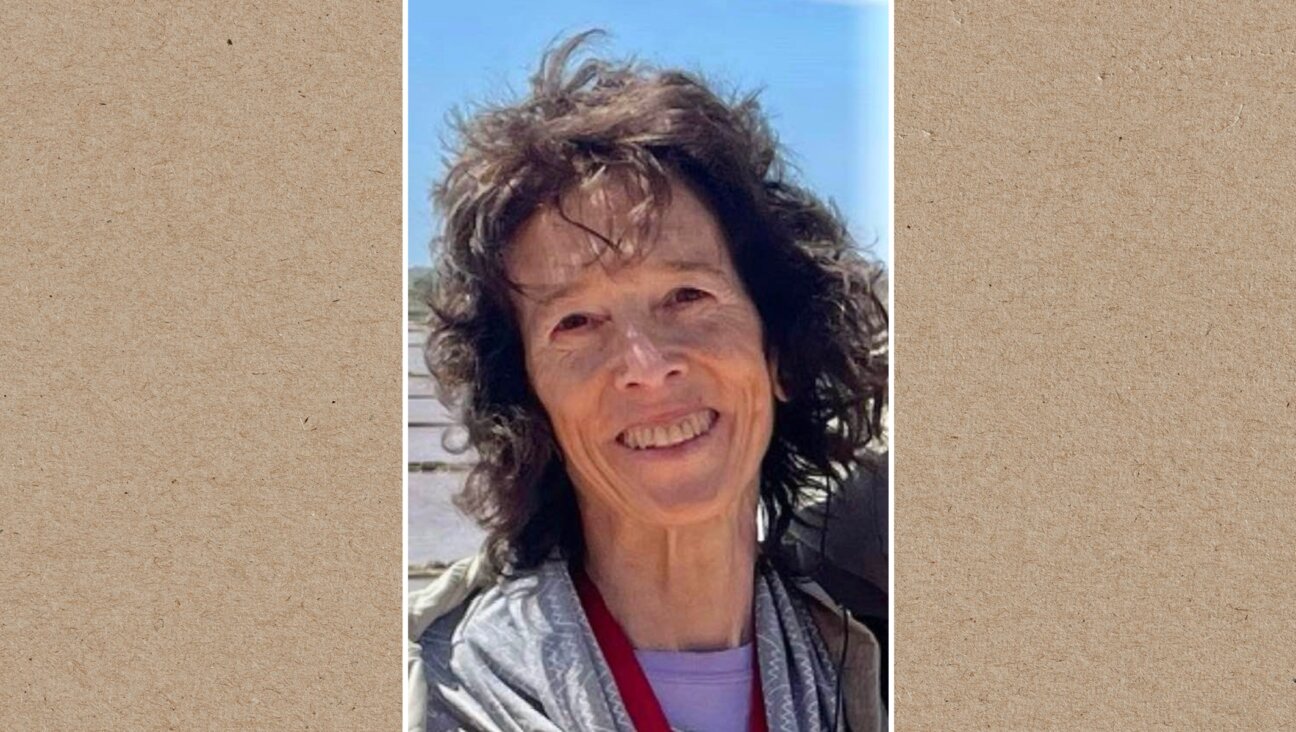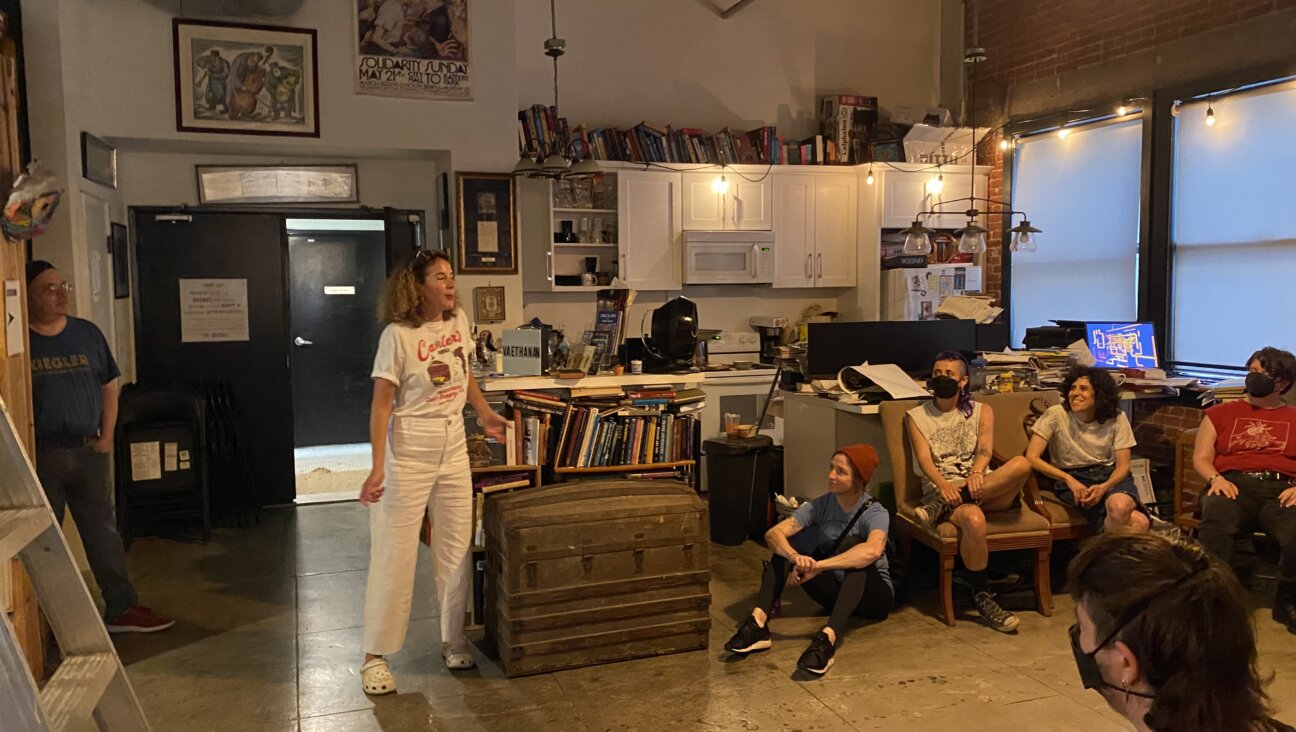Venezuelan With Jewish Roots Plans Run Against Hugo Chavez’s Successor

Running Against a Legacy: Henrique Capriles has received the blessing of Venezuela?s opposition to run in an election called after the death of strongman Hugo Chavez. Image by getty images
Venezuela has fired the starting gun in a highly charged election race likely to pit Hugo Chavez’s preferred successor, acting President Nicolas Maduro, against centrist opposition leader Henrique Capriles.
The pair have until Monday to register their candidacy for the April 14 vote, which will determine whether Chavez’s self-styled nationalist-socialist revolution will live on in the OPEC nation, home to the world’s largest proven oil reserves.
Chavez died on Tuesday at age 58 after a two-year battle with cancer.
Former vice president Maduro, 50, a hulking one-time bus driver and union leader turned politician who echoes Chavez’s anti-imperialist rhetoric, is seen winning the election comfortably, according to two recent polls.
He pushed a snap election to cash in on a wave of empathy triggered by Chavez’s death, and was sworn in as acting president on Friday to the fury of Capriles.
The 40-year-old Miranda state governor, who lost to Chavez in October but garnered the oppositions’ biggest vote against him, accused the government and Supreme Court of fraud for letting Maduro campaign without stepping down.
“It’s terrible what they have done. They have violated the constitution repeatedly,” said opposition supporter Beatriz Rueda, 62, who works in a Caracas travel agency.
“They have taken over all of the powers, the courts. … The elections must be transparent. We don’t want a confrontation. We don’t want a civil war.”
Maduro, who was sworn in as acting president in Congress on Friday and handed the red, yellow and blue presidential sash, has vowed to carry on where Chavez left off.
He has also adopted his mentor’s touch for the theatrical, accusing imperialists, often a Chavez euphemism for the United States, of killing the charismatic but divisive leader by infecting him with cancer.
Former paratrooper Chavez was immensely popular among Venezuela’s poor for funneling vast oil wealth into social programs and handouts, but he railed against the wealthy and scared investors with nationalizations.
In heavily polarized Venezuela, some well-to-do even popped champagne corks to toast his death.
Capriles says, if elected, he would copy Brazil’s “modern left” model of economic and social policies.
Venezuela’s opposition coalition backed Capriles as its candidate on Saturday, and he is widely expected to formally accept the nomination.
“I am analyzing the declaration of the president of the national election commission and will tell the country about my decision in the coming hours,” Capriles said on Twitter.
With candidates assigned a campaigning window of just 10 days, and at an immediate disadvantage given the state resources at Maduro’s disposal, Capriles faces an uphill battle.
Some argue he has nothing to gain in running, but could also commit political suicide if he opts to sit out the race and effectively hand the presidency, and a raft of economic problems like sky-high inflation and a devalued currency, to Maduro.
The opposition rank-and-file is already heavily demoralized after losing last year’s presidential race and taking a hammering in gubernatorial elections in December, stoking internal party divisions.
“There’s no doubt that it’s an uphill race for Capriles,” said local political analyst Luis Vicente Leon. “Maduro is not Chavez. … (But) the trouble is that given the race is so close to Chavez’s death, emotions get inflamed and the candidate probably continues to be Chavez rather than Maduro.
“The big challenge for Capriles is not to campaign against Chavez but to try to take the fight to Maduro … trying to show the huge gap (with Chavez) and relate it to the daily problems Venezuelans face.”
With Chavez still looming large as his remains lie in state, already visited by several million people, that will be tough.
As with communist leaders Lenin, Stalin and Mao, Chavez’s corpse is to be embalmed and put on display “for eternity”.
“He liberated us from transnational companies and stood up to imperialist countries,” Jose Vielma Mora, the governor of Tachira state, told Reuters. “We will be with Chavez forever.”
A message from our CEO & publisher Rachel Fishman Feddersen

I hope you appreciated this article. Before you go, I’d like to ask you to please support the Forward’s award-winning, nonprofit journalism during this critical time.
At a time when other newsrooms are closing or cutting back, the Forward has removed its paywall and invested additional resources to report on the ground from Israel and around the U.S. on the impact of the war, rising antisemitism and polarized discourse.
Readers like you make it all possible. Support our work by becoming a Forward Member and connect with our journalism and your community.
— Rachel Fishman Feddersen, Publisher and CEO























